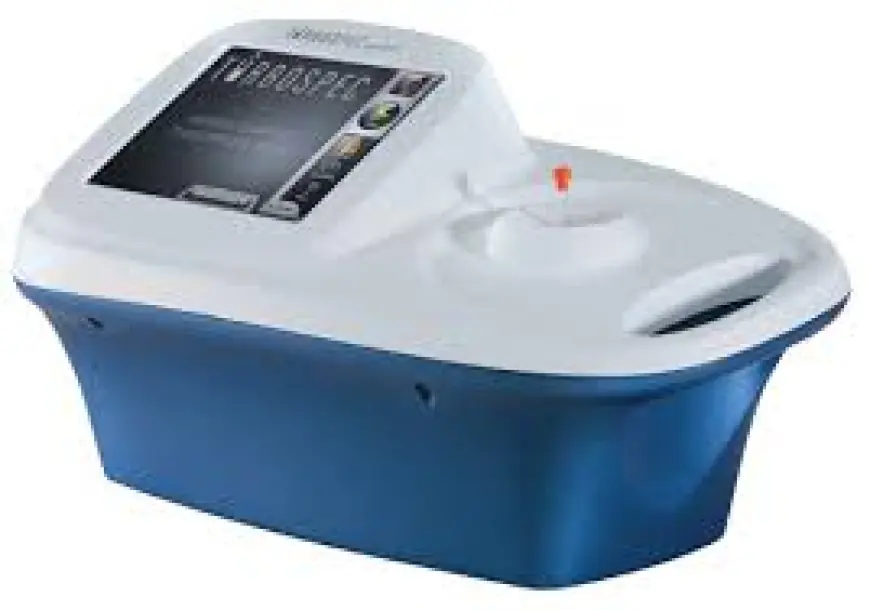Boron Analyzer Market Trends Emphasizing Regulatory Standards, Industrial Reliability, and Environmental Protection Benefits
The boron analyzer market is gaining importance globally as regulatory standards, industrial reliability, and environmental protection shape its ongoing growth.

The boron analyzer market is evolving under the influence of three powerful forces: stricter regulatory standards, increasing demand for industrial reliability, and growing emphasis on environmental protection. Boron analyzers, once limited to niche applications, are now central to multiple industries that require precise monitoring to ensure safety and compliance. With rising awareness of water quality, the prevention of industrial accidents, and the global shift toward sustainability, analyzers are becoming essential tools for businesses and governments alike. These trends underline the importance of boron analyzers in achieving operational efficiency and protecting communities from environmental risks.
Regulatory Standards Driving Market Expansion
Global regulatory bodies are tightening rules on water quality, industrial emissions, and process safety. In drinking water management, permissible boron limits are being strictly enforced, requiring municipalities to adopt advanced analyzers. Industrial facilities are also under pressure to monitor and control boron discharge to minimize environmental damage. For nuclear power plants, analyzers ensure compliance with safety requirements by tracking boron levels in cooling systems. Non-compliance can result in severe penalties, reputational harm, or even plant shutdowns. This regulatory landscape is a major driver of market adoption and encourages continuous innovation to meet evolving standards.
Industrial Reliability as a Key Demand Factor
Reliability is vital in industries where even minor deviations can cause costly disruptions. Semiconductor manufacturing, for example, requires ultrapure water to avoid damaging microchips, making reliable boron detection indispensable. Chemical processing facilities rely on analyzers to prevent contamination that could compromise product quality or safety. In the energy sector, accurate monitoring ensures consistent and safe operations. The demand for robust and dependable analyzers is pushing manufacturers to develop solutions that deliver consistent results under varied operating conditions. This focus on reliability ensures that analyzers are not only tools of compliance but also enablers of productivity.
Environmental Protection Benefits
Environmental concerns are central to the growth of the boron analyzer market. Excessive boron levels in soil and water can harm crops, aquatic life, and ecosystems. Analyzers allow industries and municipalities to track and manage boron concentrations, reducing risks to the environment. In wastewater treatment, monitoring boron ensures that discharged water does not exceed regulatory limits, safeguarding natural resources. Agricultural applications are also emerging, as analyzers help farmers balance boron levels in irrigation water, enabling sustainable farming practices. By supporting cleaner industries and healthier ecosystems, boron analyzers are aligning with global environmental goals.
Technological Advancements Supporting Adoption
Technological innovation is enhancing the performance and appeal of boron analyzers. Automation has reduced the need for manual testing, while IoT integration allows for remote monitoring and predictive maintenance. Real-time data collection improves decision-making and ensures rapid responses to irregularities. Portable designs provide flexibility for field testing, while energy-efficient models reduce operational costs. These advancements are making analyzers more practical, affordable, and attractive to a wider range of industries. By aligning with digital transformation and sustainability trends, technology is accelerating the market’s growth trajectory.
Regional Adoption Patterns
Adoption patterns differ across global regions. North America continues to lead with strong demand driven by stringent regulations and advanced industrial infrastructure. Europe emphasizes sustainability and eco-friendly solutions, encouraging widespread adoption of energy-efficient analyzers. Asia-Pacific is expected to be the fastest-growing market, supported by rapid industrialization, urbanization, and government investment in water treatment and semiconductor production. Latin America and the Middle East are emerging markets where adoption is growing as industries and governments prioritize water safety and environmental protection. This regional diversity underscores the importance of tailored strategies for global expansion.
Challenges Facing the Market
The boron analyzer market, despite its strong growth, faces challenges. High initial costs remain a barrier for smaller enterprises and municipalities, particularly in developing economies. Limited technical expertise for operating and maintaining analyzers may slow adoption in certain regions. Price competition among manufacturers can reduce profitability while increasing pressure to innovate. Addressing these issues requires designing affordable and easy-to-use analyzers, offering training programs, and building partnerships with local service providers. Successfully overcoming these challenges will ensure broader adoption and sustained market growth.
Strategic Opportunities for Growth
Ample opportunities exist for manufacturers to strengthen their position in the boron analyzer market. Expanding into emerging economies with high infrastructure investment offers long-term growth potential. Diversification into new applications, such as pharmaceuticals, agriculture, and food safety, can create additional revenue streams. Collaborating with governments and research institutions can also open doors for product development and regulatory alignment. By prioritizing customer needs and aligning with sustainability and digital transformation trends, manufacturers can secure a competitive edge and establish themselves as leaders in the global market.
Future Outlook for the Market
The future of the boron analyzer market will be shaped by its ability to address regulatory standards, ensure industrial reliability, and support environmental protection. As governments enforce stricter rules, industries will rely more heavily on analyzers for compliance and operational safety. Continued technological advancements will make analyzers smarter, more efficient, and easier to use. With sustainability at the forefront of global agendas, analyzers will remain central to balancing industrial growth with environmental responsibility. The market is well-positioned for steady growth, with opportunities spanning diverse industries and regions worldwide.
What's Your Reaction?
 Like
0
Like
0
 Dislike
0
Dislike
0
 Love
0
Love
0
 Funny
0
Funny
0
 Angry
0
Angry
0
 Sad
0
Sad
0
 Wow
0
Wow
0




























































